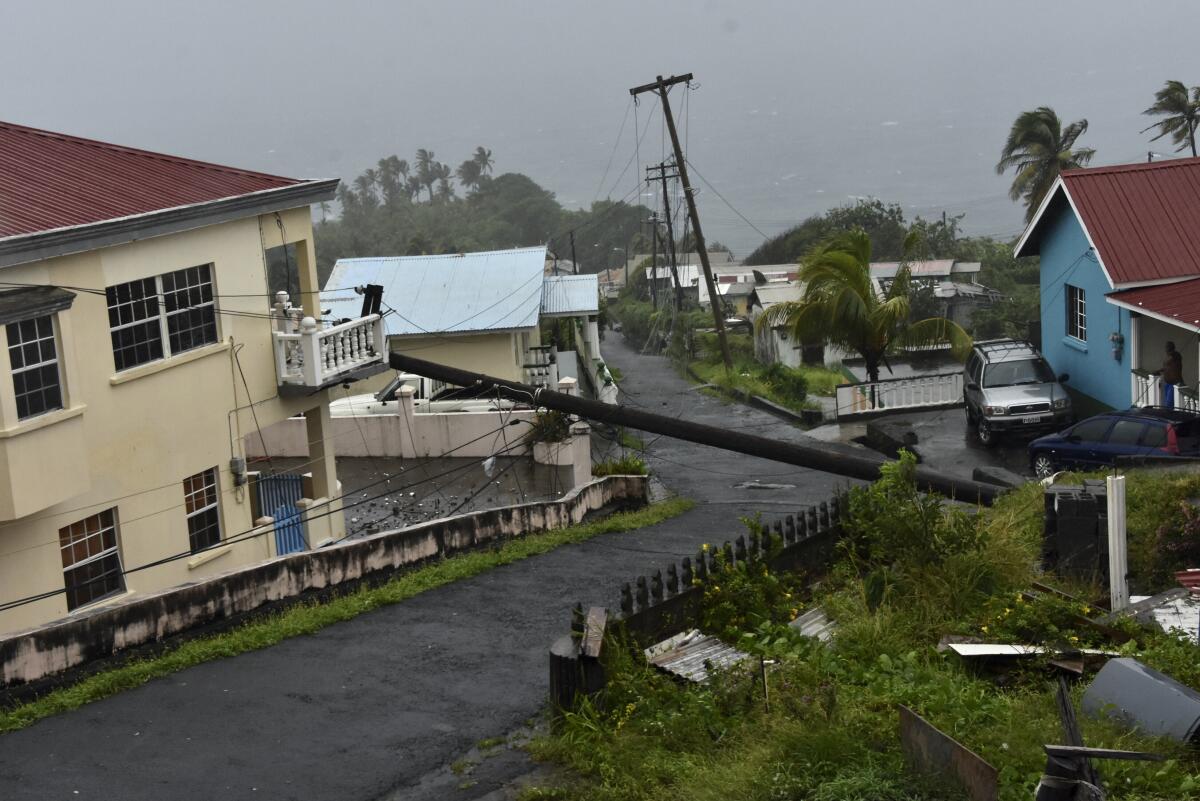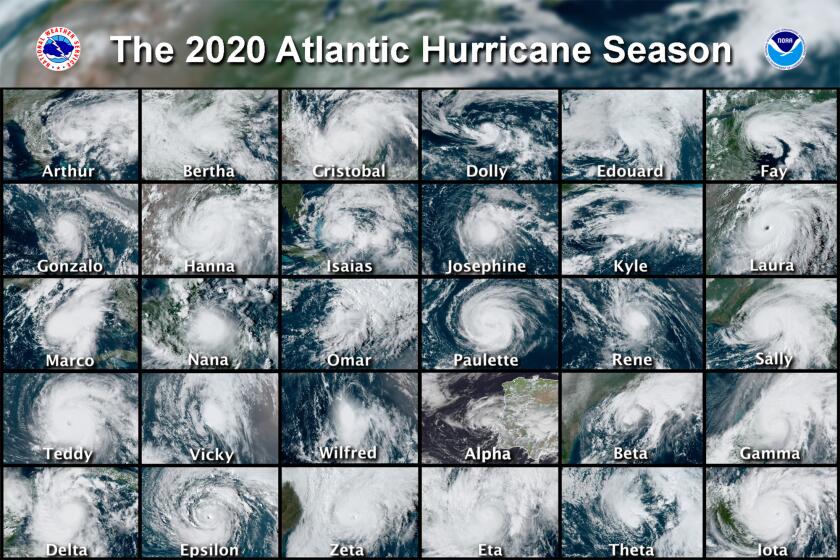Hurricane Elsa races toward Haiti, Cuba and Florida

- Share via
PORT-AU-PRINCE, Haiti — Hurricane Elsa raced toward Haiti and the Dominican Republic on Saturday, where it threatened to unleash flooding and landslides before taking aim at Cuba and Florida.
The Category 1 storm was about 110 miles east-southeast of Isla Beata, Dominican Republic and was moving west-northwest at 31 mph. It had maximum sustained winds of 75 mph, with the hurricane expected to become a tropical storm after hitting Cuba, according to the National Hurricane Center in Miami.
The long-term forecast track showed it heading toward Florida as a tropical storm by Tuesday morning, but some models would carry it into the Gulf or up the Atlantic Coast.
In Haiti, authorities used social media to alert people about the hurricane and urged them to evacuate if they live near water or mountain flanks.
“The whole country is threatened by this hurricane,” the Civil Protection Agency said in a statement. “Make every effort to escape before it’s too late.”
Forecasters expect yet another busy Atlantic hurricane season this year, but they say it won’t be as crazy as 2020.
Haiti is especially vulnerable to floods and landslides because of widespread erosion and deforestation.
People were still buying water and food as the storm approached, with many wary about its immediate and long-term effect in a country struggling with an increase in gang violence and deep political unrest.
“I’m protecting myself the best that I can. Civil protection is not going to do that for me,” said Darlene Jean-Pierre, 35, as she bought six jugs of water along with vegetables and fruit. “I have other worries about the street. ... I have to worry about gangs fighting. In addition to this, we have a hurricane. I don’t know what kind of catastrophe this is going to cause.”
A hurricane warning was issued for Jamaica and from the Haitian capital of Port-au-Prince to Punta Palenque in the Dominican Republic. A hurricane watch was in effect for the Cuban provinces of Camaguey, Granma, Guantanamo, Holguin, Las Tunas and Santiago de Cuba. Some of those provinces have reported a high number of COVID-19 infections, raising concerns that the storm could force large groups of people to seek shelter together.
“ ‘Anticipating’ is the key word,” said Cuban President Miguel Díaz-Canel, adding that vaccination efforts would continue. “Let’s take care of lives and property.”
In the neighboring Dominican Republic, which shares the island of Hispaniola with Haiti, authorities opened more than 2,400 shelters as forecasters warned of heavy rains starting Saturday before dawn.
Elsa is forecast to brush past the southernmost point of Hispaniola by early Saturday afternoon, then take aim at communities in southern Haiti.
The storm already had ripped off roofs, destroyed crops and downed trees and power lines in the eastern Caribbean on Friday, with damage reported in Barbados, St. Lucia and in St. Vincent and the Grenadines, which also suffered massive volcanic eruptions that began in April.
At least 43 homes and three police stations were damaged, said St. Vincent Prime Minister Ralph Gonsalves.
“We expect that this number will increase as reports keep coming in,” he said. “We have some damage, but it could have been far worse.”
In St. Lucia, the wind damaged a secondary school, pummeling desks, overturning chairs and sending papers flying after blowing off the roof and siding.
Elsa is the first hurricane of the Atlantic season and the earliest fifth-named storm on record. It is forecast to drop 4 to 8 inches of rain with maximum totals of 15 inches across portions of southern Hispaniola and Jamaica.
More to Read
Sign up for Essential California
The most important California stories and recommendations in your inbox every morning.
You may occasionally receive promotional content from the Los Angeles Times.











